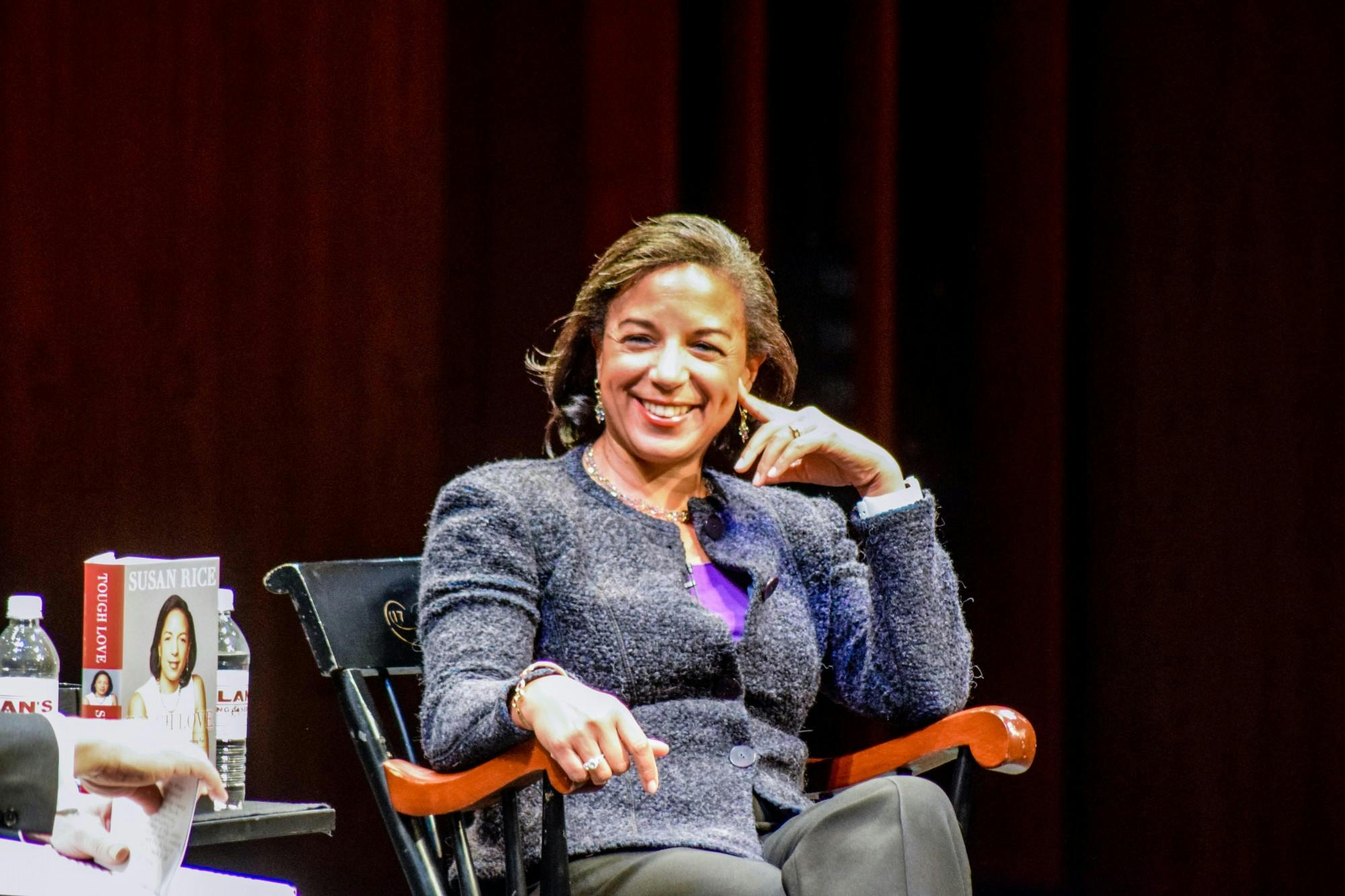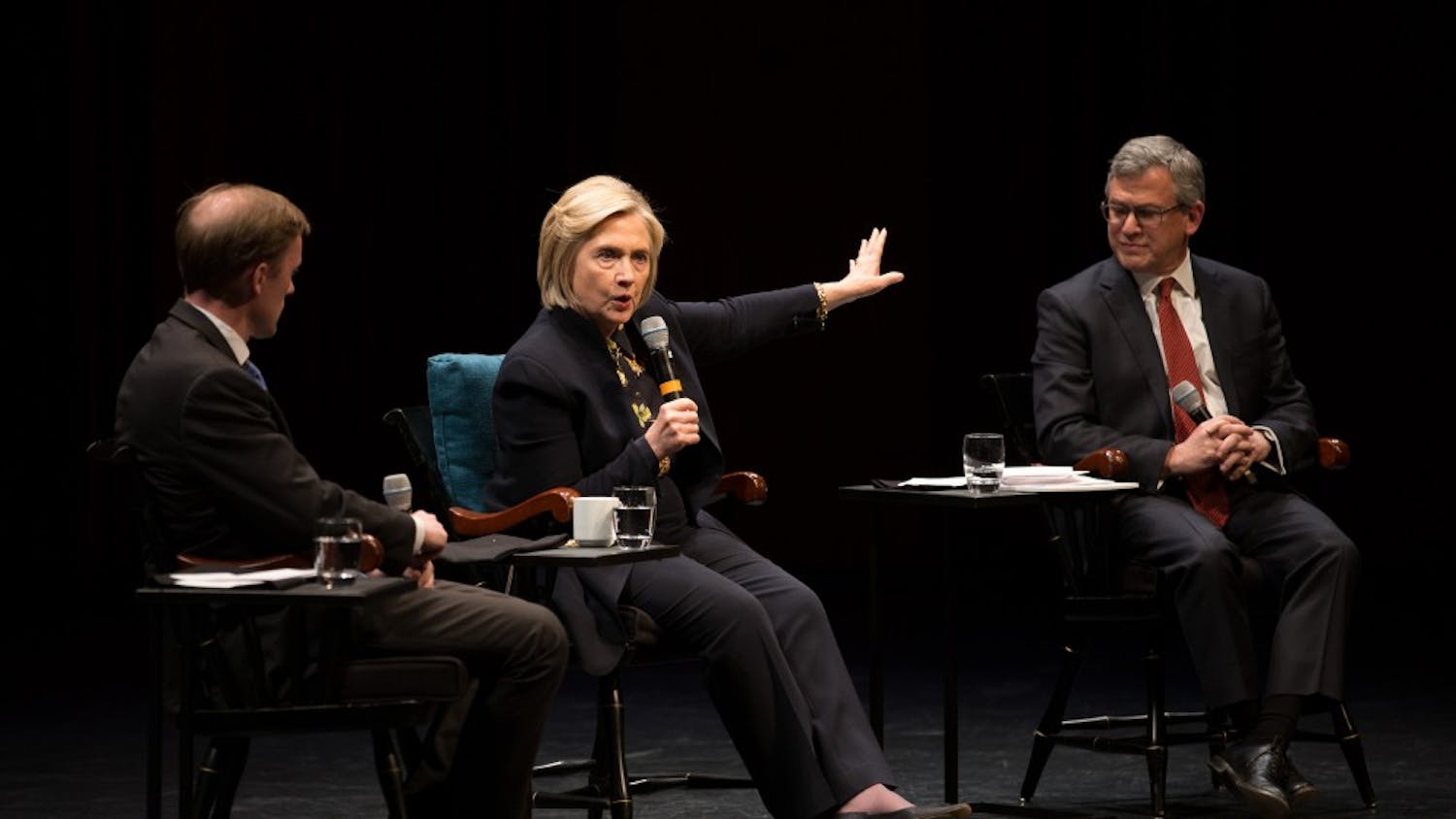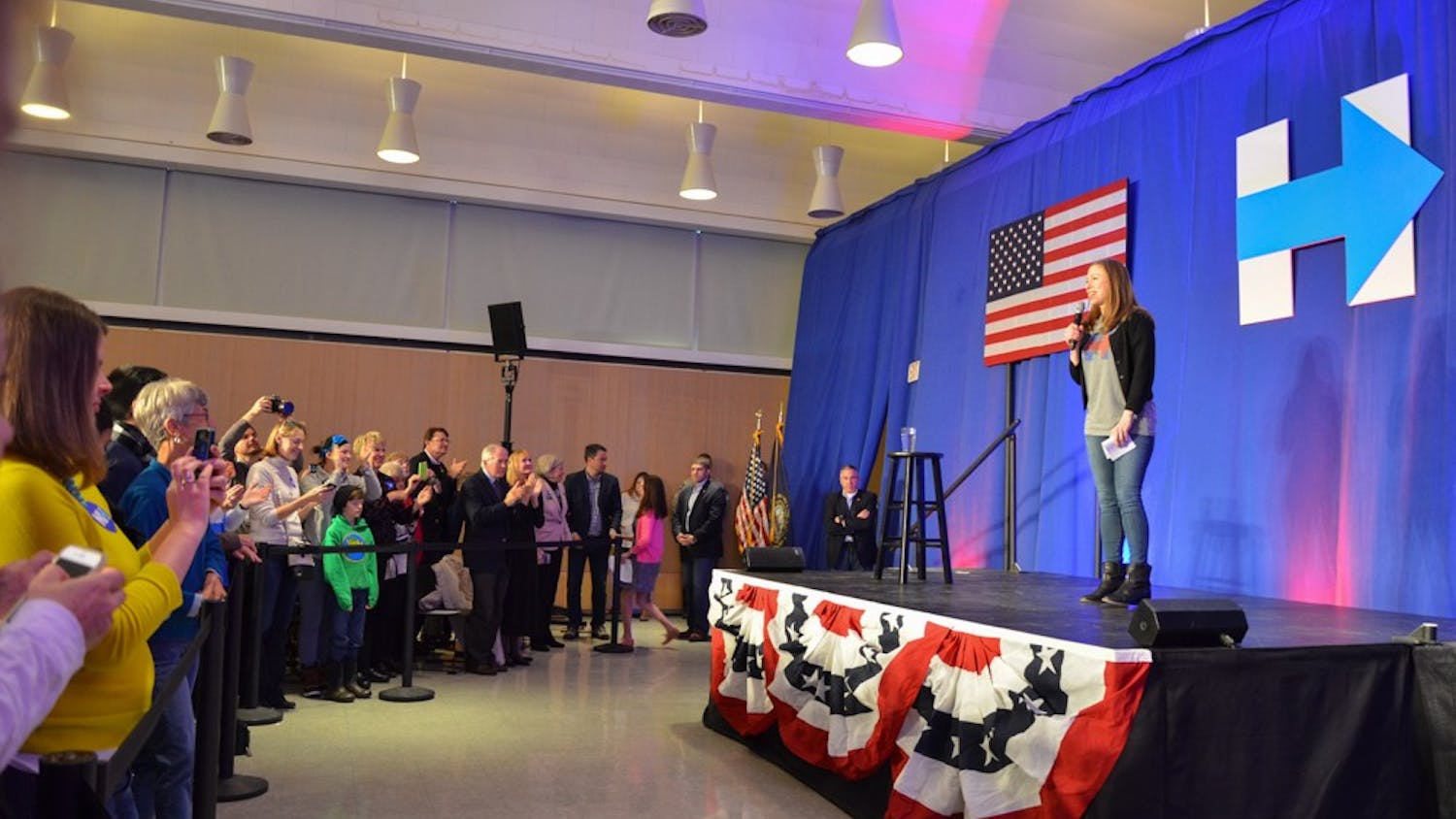Former U.S. national security advisor and ambassador to the United Nations Susan Rice spoke in Spaulding Auditorium on Thursday afternoon. In a discussion with Dickey Center director Daniel Benjamin, who served with Rice during the Clinton and Obama administrations, Rice discussed her years in public service, family background, the 2020 Democratic primary, the government’s handling of novel coronavirus and the motivation behind her new memoir, “Tough Love.”
The conversation began on Rice’s memoir, specifically the values she inherited from her parents which sparked her interest in public service. Rice said that her father — who worked in the Treasury Department, World Bank and Federal Reserve — and her mother — who worked to establish the federal Pell Grant program — jointly enforced the common theme of “education and commitment to service” during her childhood.
Rice noted that her father faced many obstacles when trying to find a job after receiving a Ph.D. due to discrimination, but ultimately landed a job as an assistant professor at Cornell University. Rice candidly remarked Cornell did not know the race of her father before he arrived — partially through the help of his advisors at the University of California at Berkeley — but he was still able to succeed in the job. However, this experience reinforced a notion in Rice from her father: “If my being black was going to be a problem, it’s going to be a problem for someone else, not for me,” she said.
Rice began her fast rise in politics in the administration of President Bill Clinton, quickly rising to the post of assistant secretary of state for African affairs — a position which oversaw 43 ambassadors, most of whom were both older than and skeptical of Rice.
Rice said that one of the lessons she learned early on in this position was the power of collaborative leadership. Rice said she started as very goal-oriented and wanted to push people forward, but this leadership style proved to be ineffective when one of her colleagues pointed out that she was “discounting the experience” of those around her.
“It was the greatest gift of tough love that I have ever received that wasn’t from my parents,” Rice said.
Rice conceded, however, that her experiences in the political fray of 2012 “looks like patty cake compared to where we are today” when “truth didn’t matter, facts didn’t matter, [and] we went after individuals ... for political purposes.”
“Our domestic political divisions are our greatest national security vulnerabilities,” Rice said.
She added that dissent around immigration, gun rights and race could be exploited by the United States’ adversaries like Russia, who are “aiming to pit Americans against each other.”
When Benjamin, who noted that Rice had become the “poster child” of polarization following the 2012 Benghazi attacks, asked about the current state of politicization, Rice emphasized a need to “minimize the powers of the extremes and reinforce a rational middle.”
Speaking on the recent coronavirus outbreak, Rice contrasted the current administration’s approach to how the Obama Administration handled the Ebola and swine flu outbreaks. She stressed that she and her colleagues didn’t portray the “alarmist behavior” the current administration has shown during the public health crisis.
When asked which Democratic presidential candidate she favored or was campaigning for, Rice stated that four or five candidates had asked for her help, but she declined to endorse anyone. She did, however, state what she wanted to see in a candidate — specifically, someone with “the ambition of unity” to repair relationships damaged between Democrats and Republicans during Trump’s term. She mentioned former vice president Joe Biden briefly, noting his 30 years-worth of relationships and calling him a “known quantity.” However, Rice said that Biden is not the only candidate who has the potential to unify people across aisles.
“As troubled I am by the moment we’re in ... I’m actually still an optimist,” Rice said. She added that she takes “comfort in our young people,” such as the Parkland High School gun control activists as well as climate activist Greta Thunberg. She voiced her admiration for those of the rising generation who are not “constrained by all these forces telling us ‘No.’”
“Some of us,” indicating to both herself and Benjamin, “should really be getting out of the way,” she quipped.
\




